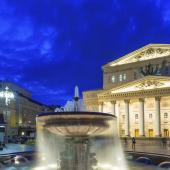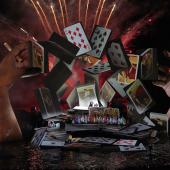History of Opera
One reaches the roots of opera via the Theatre of Ancient Greece. At that time one already interlaced scenic actions with music. In modern times, it was then believed that the lyrics should be sung. Many composers wanted to represent reality and to reflect these in a critical way with their plays. However, many times the audience was too strenuous. A journey through time.
The history of the opera starts in Florence around the year 1600. It was a labor of love for an association of musicians, poets, philosopher and scholar - the Florentine Camerata – to revive the Greek tragedy of antiquity again. The members of the Camerata considered singing as a central role in performances. And so they developed speech plays that were enriched by music. The lyrics were sung by the actors and accompanied by music. The first composer who lent music to theater was Claudio Monteverdi. Even his first music theatrical work "L`Orfeo" (1607) went far beyond the claim of Camerata. Monteverdi realized that it is possible to convey a whole range of emotions through the music and the musical language. One performer sings rigid and bleak, another in melodious tunes and so on. The central element of the opera was born: The characterization of the characters by means of music. Moreover, the sounds of musical instruments should produce widely varied moods in the opera play. For example, trumpets sound like pandemonium, timpani arrive like falls or blows, and flutes may illustrate lovely nature scenes.
About 100 years later, the opera became a new kind of realism. The actors no longer were gods, ancient heroes or mythical creatures, but rather ordinary human beeings. At this time we distinguished between the "opera seria", which continued to focus on mythological scenes, and the newly created "opera buffa". Here the content of the play is based on everyday life. Since then "opera buffa" is considered as the cutting edge of comic opera, in which next to musical acts additionally spoken dialogues occurred.
Wofgang Amadeus Mozart is clearly regarded as the most important opera composer of the 18th century. His naturalistic characters in "Don Giovanni", "The Marriage of Figaro" and "The Magic Flute" in a short time achieved great fame. Until then the Italian opera was of prime importance throughout Europe, but also Germany and France increasingly developed to independent opera venues. Richard Wagner was the first poet and composer in history of opera. He continued the romantic opera and created dramatic and musical plays such as "The Ring of the Nibelungen" and "Parsifal". The Italian opera then reached its peak in the 19th century, Giuseppe Verdi composed "Aida" and "Othello".
During the 20th century many other opera styles emerged. A revival of the baroque or medieval musical comedy were common. The "Threepenny Opera" by Kurt Weil from 1928 was an opera which generally was understood by the people. The opera was and is an integral part of the European cultural landscape. This art form is still celebrated on numerous festivals and shows of the most famous opera houses.




